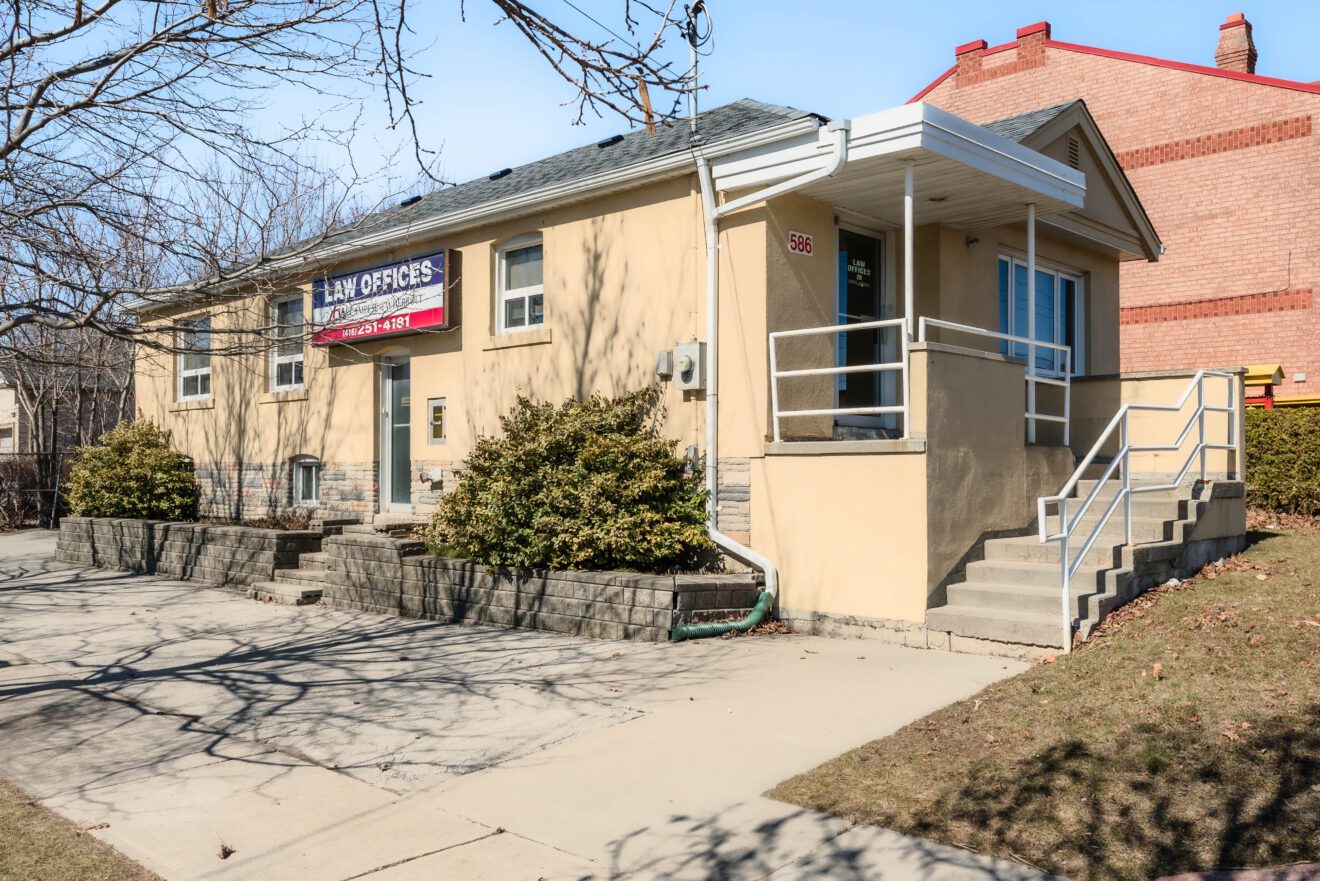Successful rental ventures hinge on more than just collecting rent on time and maintaining properties. Strong landlord-tenant relationships form the foundation of smooth operations, lower turnover rates, and a positive reputation within the rental market. Whether you are an individual landlord, a seasoned investor, or part of a larger management team, fostering these relationships requires intentional effort and understanding.
For landlords leveraging a professional property manager service, partnering with experts often provides valuable insights into effective communication, tenant retention strategies, and conflict resolution. Still, the ultimate responsibility of creating a respectful and cooperative environment rests with those who oversee the property directly.

Here are essential tips to help landlords build and maintain strong, trustworthy relationships with tenants.
Clear and Transparent Communication
The cornerstone of any solid relationship is communication. For landlords, this means ensuring tenants have clear, accessible channels to reach out with questions, concerns, or maintenance requests. Prompt responses foster a sense of respect and attentiveness.
- Set expectations upfront: When tenants move in, clearly outline communication procedures, such as preferred contact methods, office hours (if applicable), and typical response times.
- Regular updates: Keep tenants informed about upcoming inspections, maintenance schedules, or policy changes well in advance.
- Be approachable: Encouraging an open-door approach can help tenants feel comfortable discussing issues before they escalate.
Avoiding ambiguous or delayed communication can prevent misunderstandings that may damage relationships over time.
Detailed and Fair Lease Agreements
A lease agreement is more than just a legal document; it sets the tone for the entire rental experience. Landlords should ensure leases are clear, concise, and fair to all parties involved.
- Highlight tenant responsibilities and rights.
- Include provisions for maintenance, repairs, and rent payment schedules.
- Clarify policies on pets, noise, and other lifestyle considerations.
- Ensure compliance with local laws to protect both parties.
Offering a transparent lease builds trust and minimizes conflicts by establishing mutual expectations from the outset.
Regular Maintenance and Prompt Repairs
Maintaining a property isn’t just about preserving its value—it signals respect for the tenant’s comfort and well-being. Tenants are more likely to respect the property and the landlord if their living environment is safe, clean, and well-maintained.
- Schedule routine inspections to identify and address potential problems early.
- Respond quickly to repair requests, particularly for urgent issues like plumbing or heating failures.
- Use qualified professionals to ensure quality repairs.
- Keep tenants informed about timelines and progress.
Timely maintenance reduces complaints, prevents damage escalation, and demonstrates a landlord’s commitment to their tenants.
Fair and Consistent Rent Policies
Managing rent policies with fairness and consistency plays a critical role in tenant satisfaction.
- Set competitive but reasonable rent prices based on the market and property condition.
- Provide clear instructions for rent payment methods and due dates.
- Offer reminders ahead of rent deadlines without being intrusive.
- Be transparent about late fees or penalties, and apply them consistently.
Flexibility can sometimes improve relations—for example, allowing payment plans in cases of temporary hardship—but always communicate terms.
Foster Mutual Respect and Professionalism
A respectful landlord-tenant relationship creates a healthy atmosphere that benefits all parties.
- Respect tenant privacy by providing appropriate notice before visits or inspections.
- Address tenants politely and professionally, regardless of circumstances.
- Avoid unnecessary conflicts by staying calm and solution-oriented during disputes.
- Recognize and appreciate good tenants, perhaps with occasional gestures such as holiday greetings or small acknowledgments.
A respectful approach encourages tenants to reciprocate, reducing friction.
Encourage Tenant Feedback and Act on It
Inviting tenants to share their feedback can uncover issues early and show that their voices matter.
- Conduct periodic surveys or informal check-ins to gather tenant opinions.
- Encourage open conversations about how to improve their rental experience.
- Take feedback seriously and implement changes where feasible.
- Communicate actions taken based on tenant suggestions.
This involvement creates a partnership mentality rather than an adversarial one.
Be Knowledgeable About Tenant Rights and Responsibilities
Landlords must be well-informed about relevant tenant laws and regulations to ensure compliance and avoid legal disputes.
- Stay current with local housing laws, eviction processes, and safety standards.
- Respect tenant rights to privacy, habitability, and due process.
- Provide documentation about tenant rights as required.
- Avoid unlawful practices such as discrimination or retaliatory actions.
Legal awareness protects both landlord and tenant interests and establishes a framework of fairness.
Handle Conflicts Calmly and Fairly
Conflicts are inevitable, but their outcome depends heavily on how they are managed.
- Listen actively to tenant concerns without interrupting.
- Keep emotions in check and maintain professionalism.
- Seek compromises that satisfy both parties when possible.
- Document interactions and agreed-upon resolutions.
- Use mediation services if disputes escalate beyond control.
Efficient conflict resolution prevents relationship breakdown and costly legal battles.
Promote a Sense of Community
Creating a welcoming atmosphere can improve tenant satisfaction and reduce turnover.
- Organize occasional tenant events such as barbecues or holiday parties.
- Encourage tenants to know their neighbors and foster friendly interactions.
- Maintain shared spaces clean and inviting.
- Provide amenities or perks that enhance communal living.
Community-building efforts make tenants feel valued and invested in their environment.
Respect Tenant Privacy at All Times
Tenant privacy is legally protected and essential for trust.
- Give proper notice before any entry, as mandated by law.
- Limit visits to necessary purposes only.
- Avoid unannounced inspections or showings.
- Use digital tools to schedule and communicate visits transparently.
Respecting privacy reinforces a tenant’s sense of security and autonomy.
Maintain Flexibility Where Possible
Flexibility in policies can often be a key differentiator in tenant retention.
- Consider reasonable lease modifications if requested.
- Allow lease renewals or early terminations under mutually agreeable terms.
- Be open to adjustments in rent payment schedules during genuine hardship.
- Negotiate minor lease terms when justified, showing empathy.
Balancing business needs with tenant circumstances builds goodwill.
Provide Clear Move-In and Move-Out Processes
First and last impressions matter a great deal.
- Conduct thorough walkthroughs with tenants during move-in to document property condition.
- Clearly explain tenant responsibilities for upkeep and final cleaning.
- Return security deposits promptly and fairly, with detailed deductions if applicable.
- Offer move-out checklists to minimize disputes.
Clear processes reduce misunderstandings and contribute to positive relationships.
Educate Tenants on Property Use and Safety
Helping tenants care for the property benefits all parties.
- Provide instruction manuals for appliances and systems.
- Share safety protocols such as fire escape plans or emergency contacts.
- Encourage responsible behavior to prevent damage or hazards.
- Offer tips on energy efficiency or upkeep.
Empowered tenants contribute to maintaining property condition and lowering maintenance costs.
Recognize Good Tenants and Reward Loyalty
Rewarding tenants for reliability and care can boost retention.
- Offer lease renewal incentives such as small rent discounts or upgrades.
- Send holiday cards or thank-you notes.
- Acknowledge long-term tenants publicly or privately.
- Provide referral bonuses if tenants bring in new renters.
Appreciation nurtures loyalty and positive word-of-mouth.
Leverage Technology for Efficiency
Modern tools can streamline interactions and enhance tenant satisfaction.
- Use online portals for rent payments, maintenance requests, and communication.
- Send automated reminders for upcoming rent or inspections.
- Maintain digital records of leases, correspondence, and payments.
- Utilize apps for quick communication and feedback.
Technology reduces friction and adds transparency to landlord-tenant relations.
Understand Cultural and Personal Differences
Rental communities are often diverse, requiring sensitivity and respect.
- Be mindful of cultural norms and holidays that might affect tenant behavior.
- Avoid assumptions and treat each tenant as an individual.
- Offer multilingual communication when possible.
- Respect personal lifestyles within reasonable limits.
Cultural awareness enhances inclusivity and tenant comfort.
Keep Up With Market Trends and Tenant Expectations
The rental market evolves constantly, and landlords must adapt.
- Stay informed about emerging tenant preferences, such as pet-friendly policies or green initiatives.
- Upgrade amenities to meet changing demands.
- Adjust marketing and communication styles accordingly.
- Be open to innovation in property management and tenant engagement.
Remaining relevant improves competitiveness and tenant satisfaction.
Encourage Tenants to Report Problems Early
Early problem reporting can save costs and prevent disputes.
- Create a non-intimidating environment for reporting issues.
- Reassure tenants that repairs will be handled promptly.
- Avoid penalizing tenants for reporting problems.
- Provide simple ways to communicate maintenance needs.
Timely intervention protects property value and tenant safety.
Build a Network of Trusted Contractors
A reliable network ensures repairs and maintenance are handled professionally and quickly.
- Vet contractors thoroughly before hiring.
- Maintain good relationships with vendors.
- Ensure contractors respect tenant privacy and property.
- Communicate contractor visits to tenants in advance.
Dependable service providers enhance landlord credibility.
Be Honest and Ethical in All Dealings
Integrity in every interaction is key to building trust.
- Never make false promises or misrepresent conditions.
- Provide honest assessments of repairs and timelines.
- Admit mistakes and take responsibility.
- Maintain transparency in financial dealings and deposit returns.
Ethical behavior lays the groundwork for lasting landlord-tenant partnerships.
Why Choose InTrust.?
At InTrust., fostering respectful and productive landlord-tenant relationships is central to our approach. As a provider of professional property management services, we emphasize transparent communication, timely maintenance, and fairness in all interactions. Our commitment to integrity and tenant satisfaction not only protects your investment but also creates positive experiences that encourage long-term tenancies.
Choosing InTrust. means partnering with a team dedicated to proactive management, tailored solutions, and a genuine respect for the people who live in your properties. We understand that successful property management extends beyond buildings and contracts—it’s about building trust, one tenant at a time.

Questions About Commercial Real Estate?
See the services we offer to learn how we can help you achieve more with your asset.
Learn More

